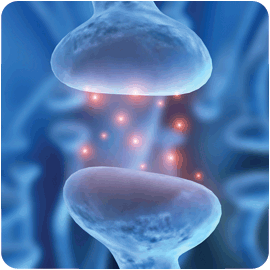Neurotransmitters have far reaching effects in the human body and take part in the regulation and control of many bodily functions and systems, including
[ultimatetables 1 /]
One of the more interesting questions that I have received in regards to neurotransmitter balance is whether seasonal or chronic allergies can cause other symptoms of neurotransmitter imbalance. On the surface, these two things – allergies and neurotransmitter imbalance – may not seem at all related. However, both are governed by neurotransmitters – allergies by histamine and neurotransmitter imbalance by serotonin and dopamine – which interact with one another.
Although allergies do not necessarily cause substantial imbalances to occur in serotonin and/or dopamine, the constant release and metabolism of histamine can alter neurotransmitter balance enough to exacerbate or create imbalances with dopamine, which can then in turn alter serotonin levels. This occurs because the same enzyme (aromatic L-amino acid decarboxylase) catalyzes the conversion of L-dopa to dopamine and histidine to histamine. If histamine production is dominating this enzyme, then dopamine production will drop. If the change is significant enough, it is possible that symptoms of neurotransmitter imbalance will occur.
Interestingly, this also works in reverse: we have found that increasing dopamine levels can have a powerful antihistamine effect, substantially decreasing seasonal allergies. More on that in another post.


